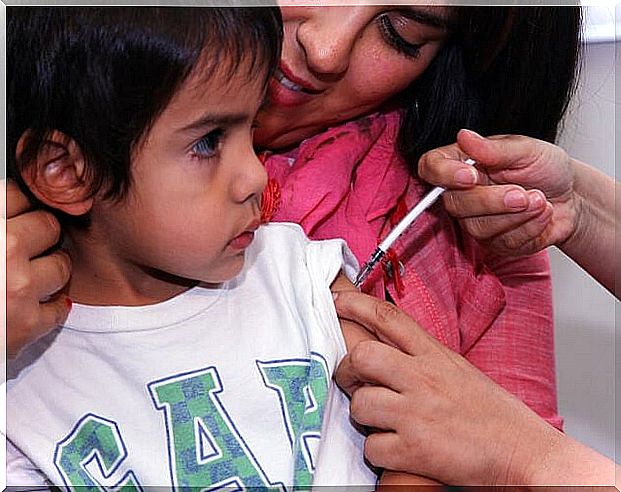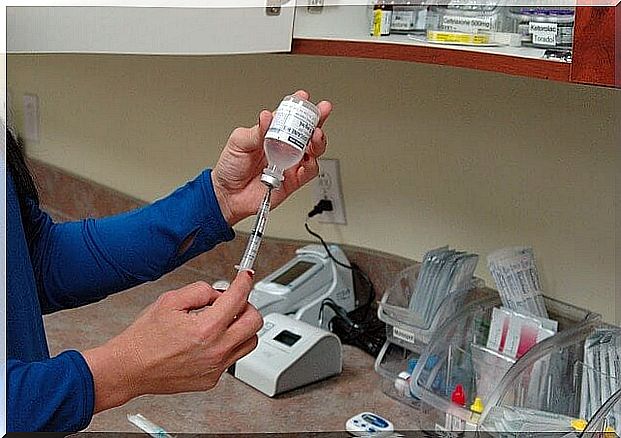Myths And Facts About Vaccines: Should I Vaccinate My Baby?

Despite what it may seem, vaccinations are not mandatory. The fact that some health insurances, public or private, include them among their benefits, does not mean that there is any obligation to administer them.
Another aspect that can confuse parents is the fact that many early childhood education centers request the vaccination card to verify that the child is correctly vaccinated. In this case, vaccination would be a necessary requirement to access that center, nothing more than that.
Parental responsibility
Mandatory or not, vaccination is essential to take care of the health of our children. Even so, many parents deny vaccination, claiming different arguments that, without missing part of the reason, do not justify non-vaccination by themselves.
The Spanish Association of Pediatrics (AEP) is against making childhood vaccinations mandatory, according to a document on the subject released in 2015. However, the AEP urges parents to decide responsibly, that is, by informing themselves correctly.

Vaccines are beneficial
This document, entitled Positioning on a responsible childhood vaccination by parents or guardians , and signed by the Vaccine Advisory Committee of the AEP and the Bioethics Committee of the AEP, explains that scientific evidence has demonstrated the benefits of vaccines . It also ensures that the effectiveness and safety of currently available vaccines justify reliance on them.
The document clarifies that anti-vaccine movements raise doubts about the safety and effectiveness of childhood vaccines. This can lead to some parents not wanting to vaccinate their children, which raises a conflict of values between the right of parents to choose how to raise their children and that of their children and even that of society in general, by putting into risk both your children and other children.
For this reason, from the AEP they insist that the importance of informing accurately and truthfully about the benefits and risks of vaccination in order to decide responsibly.
Vaccines have saved millions of lives
In any case, it must be remembered that vaccines have saved millions of lives. Can you imagine having your children a century or two ago? Infant mortality has been drastically reduced for many reasons, and one of them is undoubtedly vaccination.
For this reason, the World Health Organization urges the vaccination of children all over the planet to prevent the proliferation of diseases. The WHO also denies the dangers attributed to vaccines. They may have seen more than many of today’s parents can even imagine.

Myths and truths about vaccines
The time has come to ask what are those widespread myths that make many doubt about the need to vaccinate their children or not.
Myth 1 – Hygienic improvements do not expose us to infectious diseases
This is false. Diseases do not spread only in unsanitary environments. In fact, we would have to live in a sterile environment to avoid contagion. It is true that some current hygiene habits prevent diseases from spreading virulence, but this is not enough.
On the other hand, some diseases that are considered extinct could reappear quickly if they are not vaccinated against them, such as polio or measles.
Myth 2 – It is not necessary to get vaccinated for diseases that are eradicated
This is false. Although vaccination programs have been successful in reducing the incidence of many diseases, the infectious agents that cause them continue to circulate and can cross borders. In this sense, if vaccination rates in a country are reduced, these microorganisms would spread easily.
Myth 3 – Vaccines can cause adverse effects, even death
This is false. For clinical trials carried out with vaccines, much larger samples are used than those used for drugs, in addition to including very exhaustive monitoring and safety controls.
Reactions to vaccines are minor and do not usually cause serious side effects. In any case , the consequences of not getting vaccinated could be much more serious.
Myth 4 – Having the disease is the best way to get immunized
This is another falsehood. Although vaccines produce a response in the immune system similar to that produced by natural infection, the truth is that this response has no risks and avoids suffering from the symptoms of the disease and its consequences, which can be extremely serious and can put life at risk.
Myth 5 – Vaccines contain mercury, which is dangerous
This is false. Currently, few vaccines contain thiomersal, a widely used organic compound that contains mercury and can be added to some vaccines as a preservative. And if that’s your concern, check it out on the packaging. In any case, there is no scientific evidence to suggest that the amount of mercury in a vaccine poses any risk.
By the way, don’t forget that you are also exposed to mercury in a large number of commonly consumed products, such as fish, shellfish, and shellfish. In fact, according to a study, 35% of the population ingest too much mercury in food.
To vaccinate or not to vaccinate?
Without still having doubts, this video produced by the journalist Pablo Linde will help you clarify what is really behind vaccination.









